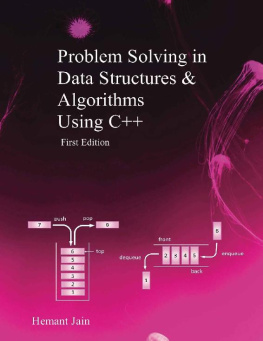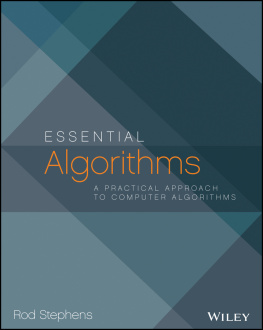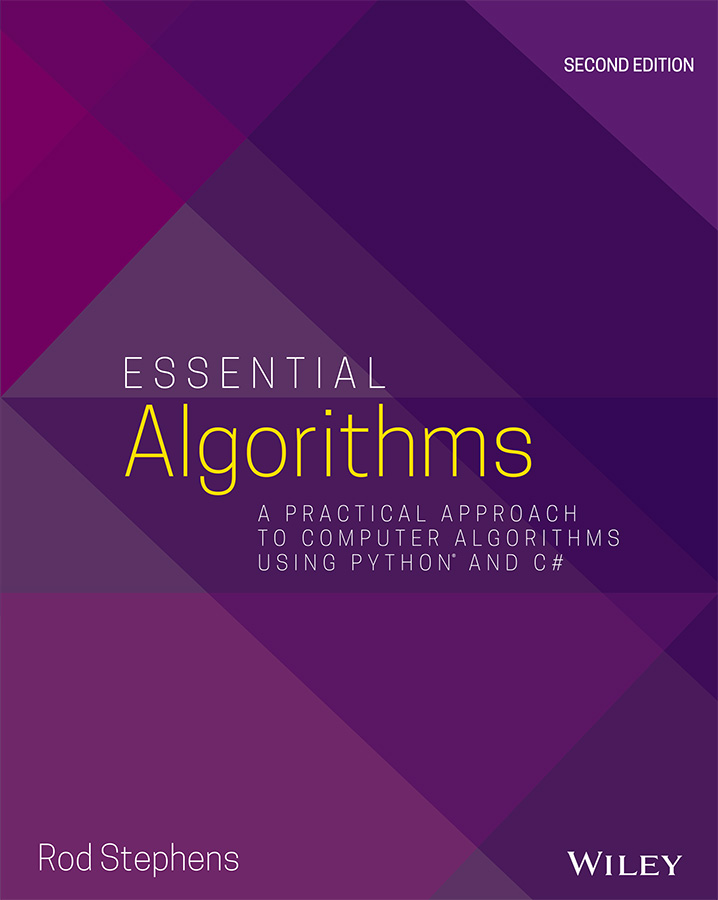Stephens - Essential algorithms: a practical approach to computer algorithms using Python and C#
Here you can read online Stephens - Essential algorithms: a practical approach to computer algorithms using Python and C# full text of the book (entire story) in english for free. Download pdf and epub, get meaning, cover and reviews about this ebook. City: Indianapolis;IN, year: 2019, publisher: John Wiley & Sons, Inc. (trade), genre: Children. Description of the work, (preface) as well as reviews are available. Best literature library LitArk.com created for fans of good reading and offers a wide selection of genres:
Romance novel
Science fiction
Adventure
Detective
Science
History
Home and family
Prose
Art
Politics
Computer
Non-fiction
Religion
Business
Children
Humor
Choose a favorite category and find really read worthwhile books. Enjoy immersion in the world of imagination, feel the emotions of the characters or learn something new for yourself, make an fascinating discovery.

Essential algorithms: a practical approach to computer algorithms using Python and C#: summary, description and annotation
We offer to read an annotation, description, summary or preface (depends on what the author of the book "Essential algorithms: a practical approach to computer algorithms using Python and C#" wrote himself). If you haven't found the necessary information about the book — write in the comments, we will try to find it.
The revised and updated second edition ofEssential Algorithms,offers an accessible introduction to computer algorithms. The book contains a description of important classical algorithms and explains when each is appropriate. The author shows how to analyze algorithms in order to understand their behavior and teaches techniques that the can be used to create new algorithms to meet future needs. The text includes useful algorithms such as: methods for manipulating common data structures, advanced data structures, network algorithms, and numerical algorithms. It also offers a variety of general problem-solving techniques.
In addition to describing algorithms and approaches, the author offers details on how to analyze the performance of algorithms. The book is filled with exercises that can be used to explore ways to modify the algorithms in order to apply them to new situations. This updated edition ofEssential Algorithms
Contains explanations of algorithms in simple terms, rather than complicated math Steps through powerful algorithms that can be used to solve difficult programming problems Helps prepare for programming job interviews that typically include algorithmic questions Offers methods can be applied to any programming language Includes exercises and solutions useful to both professionals and students Provides code examples updated and written in Python and C#Essential Algorithmshas been updated and revised and offers professionals and students a hands-on guide to analyzing algorithms as well as the techniques and applications. The book also includes a collection of questions that may appear in a job interview. The books website will include reference implementations in Python and C# (which can be easily applied to Java and C++).
Stephens: author's other books
Who wrote Essential algorithms: a practical approach to computer algorithms using Python and C#? Find out the surname, the name of the author of the book and a list of all author's works by series.


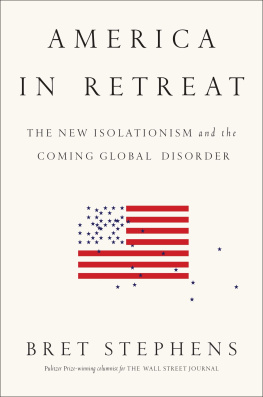

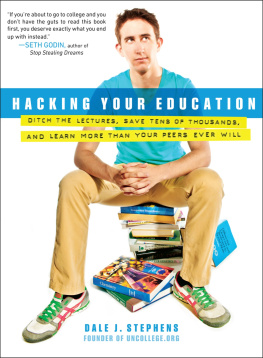


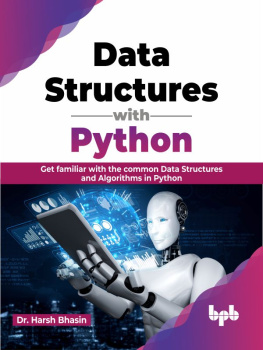
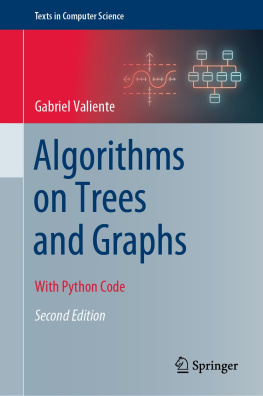
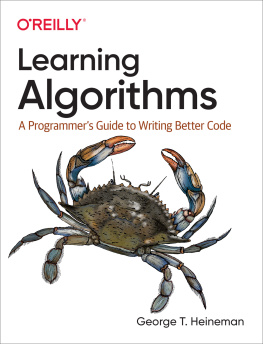
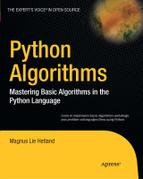
![Magnus Lie Hetland [Magnus Lie Hetland] - Python Algorithms: Mastering Basic Algorithms in the Python Language, Second Edition](/uploads/posts/book/124062/thumbs/magnus-lie-hetland-magnus-lie-hetland-python.jpg)
